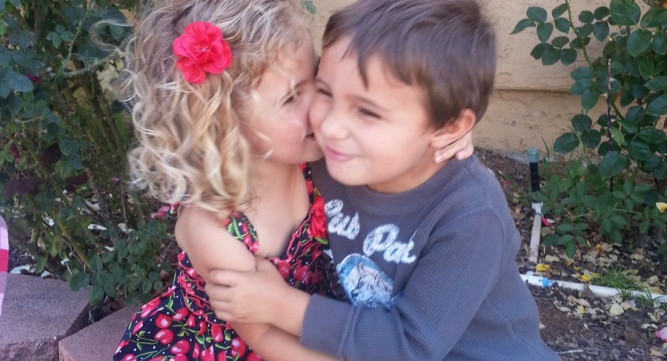

What’s the most frequent complaint I hear about school from teens in my psychotherapy practice?
Group projects.
They hate them. Dread them. Feel entrapped by them.
Typically, there is conflict. Even more frequently, one sorry soul comes forward and drags the group along, taking on 90% of the burden. Social dynamics abound, with heightened fears about popularity, judgment for “caring too much,” resentment about shepherding the slackers, and disgust toward teachers for the requirement.
Of course, I heard the same complaints from my kids when they were in school. And thankfully, my own vague personal memory of classroom projects has receded, since none of those memories were positive.
The actual content of the project is secondary to the students’ confusion about how to cooperate, collaborate, and motivate each other toward a goal. And if parents, teachers, and coaches have trouble enlisting students’ cooperation and motivation, how can we expect a group of middle school and high school students to succeed on their own?
Why this practice persistsEncouraging collaboration, team-building, cooperation, and leadership skills through group activities are wonderful aspirations. I get it. Helping students evolve into productive citizens who communicate effectively and work collaboratively are worthwhile goals.
Here’s the glitch, though: these “soft skills” (such as communication, empathy, cooperation, flexibility, and critical thinking skills) are vital for success in school and in the workforce. But they don’t just happen spontaneously. Developing soft skills requires education, training, role-modeling, and practice.
You wouldn’t throw a young child into the deep end without swimming lessons.
Yet, students are grouped together with no training in how to work with each other. No lessons in collaboration, brainstorming, respectful communication, time management, organizational planning, and conflict resolution.
It’s remarkable that more kids don’t rebel.
Some changes ahead through social/emotional learningFortunately, some schools are offering strategies to build soft skills early. In addition to the executive functioning skills training many schools now provide (which involves planning, organizational skills, time management, and goal-setting), some schools offer social and emotional learning (SEL) training — a foundation for working collaboratively and efficiently that can extend benefits well beyond the school years. According to researchers Eui Kyong Kim and colleagues:
“Social-emotional learning involves the development of skills like self-awareness, self-management, social awareness, relationship building, and responsible decision-making. These skills are necessary for fostering healthy relationships, effective communication, self-regulation, and preventing harm to others. Furthermore, research has shown that students’ ability to understand and manage their emotions and relationships is linked to academic and career success.”
Research has shown that it’s not just communication and interpersonal comfort that improves. In a meta-analytic review (a review of studies), researchers Cheyeon Ha and colleagues found that SEL interventions contributed to better academic achievement, higher GPA and test scores, and improved achievement in both literacy and math.
In his book, Parenting from the Heart, psychologist Steven Pfeiffer provides a “heart strengths” model and outlines the social and emotional skills necessary to help children thrive. These include the capacity for persistence, frustration tolerance, kindness, generosity, humility, good social judgment, and empathy. These essential skills are not solely the product of astute parenting; they can be taught by teachers, coaches, and any person raising or educating youth.
Two recent examples of schools-based interventions supporting the benefits from SEL training include the following:
· In a study of 900 students, researchers at the University of Cambridge found that empathy skills can be taught. A brief course in empathy training resulted in improvement in conduct, emotional awareness, and even curiosity about different cultures.
· A recent Edutopia article described how students can become less defensive and more open to constructive feedback. This capacity develops when self-regulation abilities and confidence are enhanced through practice and role-modeling.
What about the critics?Unfortunately, some critics scoff at the importance of soft skills, especially those with political agendas that view empathy and collaboration as a threat. In an article describing the backlash against empathy, The Utah Education Association provides guidelines for supporting SEL education in the classroom and for speaking with those who oppose it.
The National Education Association offers guidelines for implementing SEL training as well as advocacy efforts when faced with criticism about these programs. The Fordham Institute also provides helpful tips when confronted with opposition.
When children are told to “go outside and play nicely,” those instructions often fall on deaf ears. Kids know that punching their friend is not a good plan, but often lack alternative skills for more calmly reacting when conflict arises.
Interpersonal dynamics play an outsized role in classroom group projects. Instead of throwing students into the deep end and expecting them to swim, it falls on educators and families to guide children to arrive safely on shore.
Without repeated skills-building strategies, role modeling, and an opportunity to practice new behaviors, children will ignore instructions that make no sense. Their take-away from most classroom group projects is distrust and disgust toward an educational system that expects collaborative work but offers little guidance.
It is incumbent upon us as parents, teachers, psychotherapists, coaches, and mentors to help our children and students develop the life skills they need for academic and career success, resilience, healthy interpersonal relationships, and for their role as caring and responsible citizens in a somewhat fractured and divisive world.
As similar version of this article was published on Medium.




